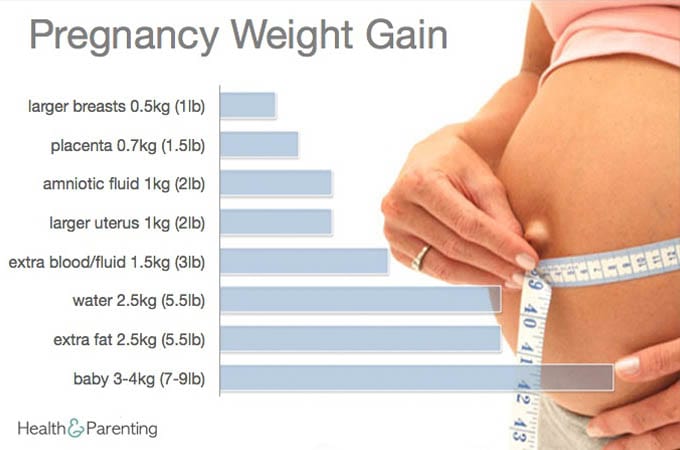The term dieting means different things to different people. For some, reducing the number of biscuits in one sitting is considered a diet, but for others, it’s only a diet if it means eating nothing but cabbage soup for a whole month. The latter is best avoided during pregnancy, because your developing baby has a whole host of nutritional needs not covered by boiled cabbage.
Dieting during pregnancy is not recommended, and women are advised to avoid weight-loss regimes during this time. It is important to remember, however, that overeating should also be avoided. Gone are the days of ‘eating for two.’ In fact, you should only increase your calorie intake by about 200 calories during the final trimester.
What should I be eating?
You shouldn’t be trying to lose weight or eating for two, instead you should be focusing on eating a healthy, balanced diet. You should try to eat a variety of fresh fruit and vegetables each day, and reduce the number of empty calories you eat. Empty calories – for example, sodas, chocolate bars and crisps – contribute to your daily calorie intake without providing any notable nutritional value.
Staying healthy
Staying active during pregnancy can help you to keep your weight gain at a healthy level. You should aim for 30 minutes of exercise each day, and this could be something as simple as walking from work. Swimming, yoga and pilates are also great exercises recommended during pregnancy.
How much weight should I put on during pregnancy?
Your healthcare provider is best placed to answer this question, but as a general rule, this depends on your pre-pregnancy weight. Your healthcare provider will have calculated your BMI at your first appointment, and used this to determine your healthy weight gain:
- If you were underweight, you should aim to put on between 28 and 40 lb by the end of the pregnancy.
- If you have a healthy BMI, you should aim for 25 to 35 lb.
- If you were overweight pre-pregnancy, you should aim for 11 to 20lb.
Your healthcare provider will weigh you at various points throughout the pregnancy to monitor your weight gain. Any concerns will be flagged, and, if needed, you will be offered appropriate advice and support. If you feel worried about weight gain, whether too much or too little, speak to your healthcare provider. They are best placed to offer you tailored advice based on your unique situation.
Try our Pregnancy Weight Gain Calculator to see how much weight you can expect to gain during your pregnancy.
Written by Fiona, proud owner of a toddler, @fiona_peacock
This information is not intended to replace the advice of a trained medical doctor. Health & Parenting Ltd disclaims any liability for the decisions you make based on this information, which is provided to you on a general information basis only and not as a substitute for personalized medical advice. All contents copyright © Health & Parenting Ltd 2017. All rights reserved.










